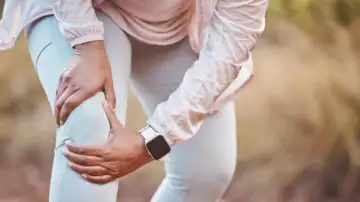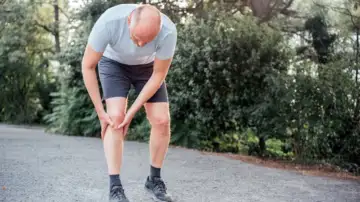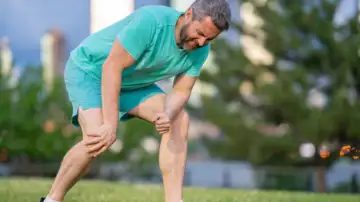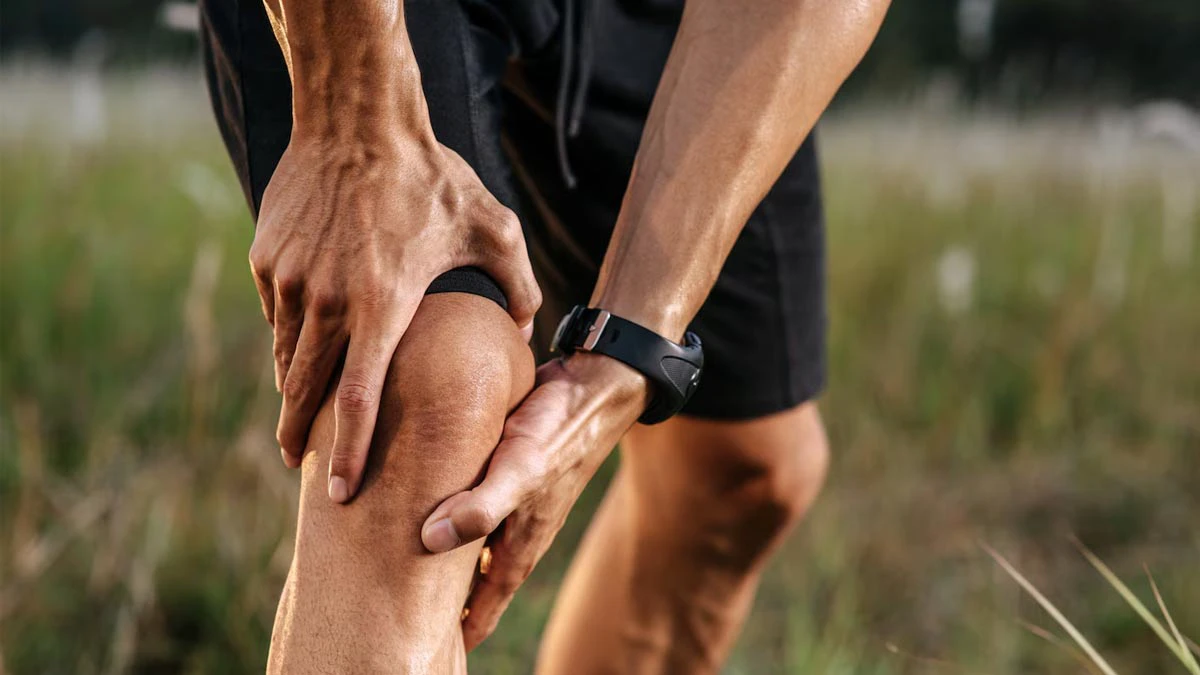Have you ever had a discomforting stiffness in your knees, particularly when you get out of bed, climb stairs, or suddenly stand up from a sitting position?
If that is the case, you may be having a ‘rusty hinge’ sensation in your joints. But what exactly is this sensation? Is it temporary, or does it indicate underlying health conditions? In an interaction with the OnlyMyHealth team, Dr Mayank Pathak, Consultant – Orthopaedics, Manipal Hospitals, Kharadi, Pune, shared some of the common causes and discussed why it’s important to intervene early.
Understanding ‘Rusty Hinge’ Sensation In The Knees

A ‘rusty hinge’ sensation typically means stiffness, a minor grinding, or even some soreness during the movement, explained Dr Pathak. “This sensation usually occurs when getting out of bed, climbing stairs, or getting up after spending a lot of time sitting down. It’s not just an indication of worn-out joints; it’s the human body warning of the possibility of early ” he added.
Comprising ligaments, cartilage, bones, and fluid-filled sacs called bursae, the knee is a complex joint that supports movement and absorbs impacts.
What Causes Stiffness In The Joints?

According to Dr Pathak, early osteoarthritis, a medical term for gradual cartilage degradation, is one of the main causes of knee stiffness.
About 52.8 crore people worldwide were living with osteoarthritis in 2019, an increase of 113% since 1990, according to the World Health Organization (WHO). About 73% of people living with osteoarthritis are older than 55 years, and 60% are female.
Additionally, early meniscus deterioration or inflammation of the synovial membrane are two more possible explanations for a ‘rusty hinge’ sensation in the knees. Early meniscus deterioration can lead to a torn meniscus, often caused by a combination of factors including ageing, repetitive stress, and underlying conditions like osteoarthritis. Inflammation of the synovial membrane is called synovitis, a condition where the tissue lining the joints, called synovium, becomes swollen and inflamed, leading to pain and stiffness.
Dr Pathak also shared factors that often contribute to knee stiffness and discomfort, which include being overweight, leading a sedentary lifestyle, having previously suffered a knee joint injury, or being elderly and experiencing frequent knee stress from repetitive motions.
Muscle imbalances surrounding the joint and/or postural issues could be contributing factors in younger people.
Why Early Intervention Matters
If the knee pain and discomfort are persistent, it is important to get a medical check-up to rule out chronic conditions like osteoarthritis. “Ignoring this feeling could end up in tissue damage, reduced mobility, chronic knee discomfort, and knee swelling,” warned Dr Pathak.
He adds that at least joint function can be preserved and long-term consequences can be postponed or even avoided with early diagnosis, evaluation, and treatment.
An orthopaedic evaluation would typically include a physical examination, X-rays, and/or MRI investigations to look into the condition of the knee’s cartilage and soft tissues.
Treatment Options

Conservative methods usually work to treat the early stages. According to Dr Pathak, these include medication that helps decrease pain and swelling, physiotherapy to strengthen the surrounding muscles, and lifestyle modifications, including losing weight and engaging in all joint-friendly physical activities.
“Supplemental glucosamine, chondroitin, or collagen could be necessary for medical treatment. Patients who exhibit severe symptoms can think about treatments like hyaluronic acid injections or Platelet-Rich Plasma (PRP) injections, which can lubricate the joint and lessen inflammatory joint reactions.
“Minimally invasive techniques like knee arthroscopy or even partial joint replacement may be necessary in more severe situations with substantial cartilage loss or mechanical aberration. One development that has improved alignment, recuperation time, and precision in these circumstances is the introduction of robotic-assisted surgeries,” he added.
Conclusion
A rusty hinge sensation isn’t the best feeling in the world. In fact, one must take it seriously if it occurs on a daily basis. “It is not appropriate to dismiss the ‘rusty hinge’ sensation in the knees as a normal part of ageing. Your body is indicating that the joint is under stress,” said Dr Pathak. He concluded that a person can prolong knee health well into the senior decades by continuing care, bolstering programmes, and seeking advice from the doctors.
